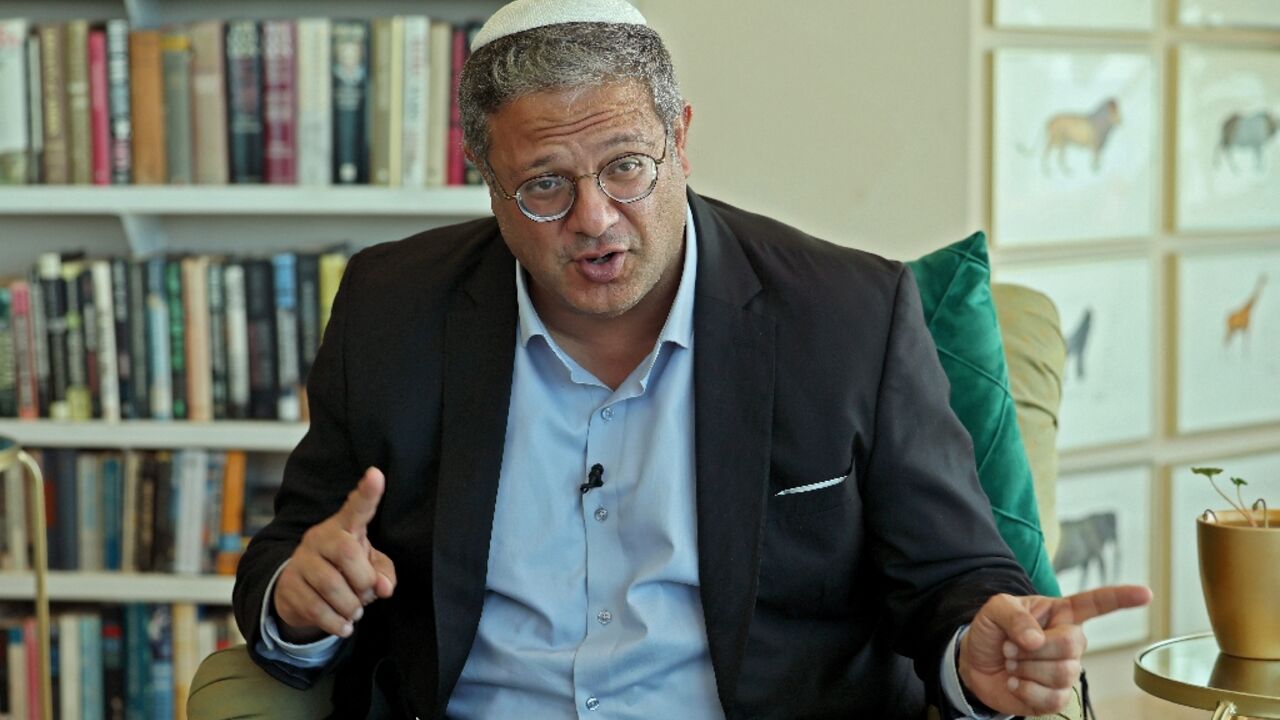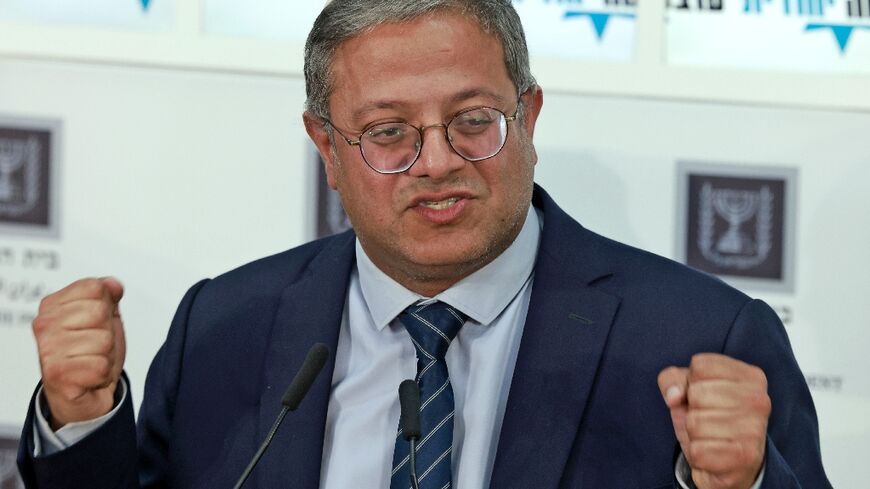Israel's far-right leader Ben-Gvir wins adoring young fans

Israel's far-right leader Itamar Ben-Gvir may have faced dozens of charges of hate speech against Arabs, but many young voters adore him as the voice of truth.
"The youth follow true messages," argued the Jewish Power party leader ahead of November 1 elections, at a time of flaring violence in the occupied West Bank.
"I don't say one thing and think something else," added the 46-year-old. "I offer my truth and my truth is that we must save the country."
Ben-Gvir, who is often surrounded by throngs of devout boys and young men, said that "young people know that I will defend them when they are in the army.
"They know I will protect the country" against "the jihadists," added Ben-Gvir, an incendiary figure in Israeli politics for years.
As a teenage opponent of the Oslo Peace Accords with the Palestinians, he famously vandalised Yitzhak Rabin's car shortly before the then prime minister was assassinated in 1995.
His political roots lie with the virulently anti-Arab Kach movement that was banned by Israel after one of its supporters, Baruch Goldstein, massacred 29 Palestinians in Hebron.
Ben-Gvir used to have a portrait of Goldstein hanging in his living room.
Now polls suggest the Religious Zionism alliance, which includes Jewish Power, could become the third largest bloc in parliament.
This could make it the main partner in a prospective government formed by opposition leader Benjamin Netanyahu, who is seeking to reclaim the premiership.
Ben-Gvir's particular appeal among young voters stems from him offering "clarity" amid an unprecedented political crisis, said Yossi Klein Halevi of the Shalom Hartman Institute in Jerusalem.
- 'Simply telling the truth' -
Yakir Abelow, 22, who comes from the West Bank settlement of Efrat, argued that Ben-Gvir's message amounted to a "wake-up call".
"It's just refreshing to finally see someone stand up for the values that you believe (in), in terms of building a stronger Jewish state... taking care of what needs to be taken care of," he told AFP.
For Ben-Gvir, that checklist includes annexing the entire West Bank, a territory occupied by Israel since 1967 which is home to 2.9 million Palestinians and 475,000 Jewish settlers.
He has also called for deporting all Arab citizens deemed disloyal to Israel, while criticising the army and police for not using adequate force against Palestinians.
Shlomo Fischer, a sociologist at Jerusalem's Jewish People Policy Institute, said Ben-Gvir's appeal for many is that he does not "compromise".
"He says: people who endanger the state, terrorists, should be expelled and denied all rights," Fischer told AFP.
"He's understood to be authentic. He's not going to compromise because the Americans don't like it."
That message resonates with voters who believe Israel reached a fair peace deal in the 1990s, blaming the Palestinians for the accord's collapse and subsequent bloodshed, Fischer said.
This group believes "that there is no partner, there is no peace process, its unrealistic, (that) we have to live with the conflict and if we live with the conflict then we have to be able to do what we need to do," he explained.
- 'So much pride' -
Channelling Ben-Gvir's purported national security straight-talk, settler Abelow opined that sometimes, "unfortunately, we have to kill people".
"It's so sad. I don't want to send my soldiers to do that, but it's to defend us, knowing that if we don't, more people will get killed."
He told AFP that the moment he put on the Israeli military uniform, he felt "so much pride. I was ready to jump on any terrorist".
With rising polls indicating Ben-Gvir's grouping may become a crucial parliamentary force, he has slightly moderated some of his positions.
He told AFP that while he had called for the expulsion of all Arabs 20 years ago, he no longer supports that position.
Ben-Gvir also took down the portrait of Goldstein, the Hebron mass murderer, when he entered politics.
But for Fischer, the core of Ben-Gvir's appeal remains unchanged.
He has drawn supporters, Fisher said, by arguing that those "who threaten the security of Jews... should be killed, expelled, dealt (with). That will solve the problem."








